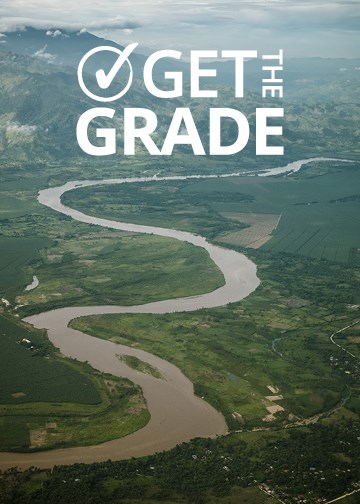WASHINGTON, Aug. 25, 2015 (GLOBE NEWSWIRE) -- Today at World Water Week, World Wildlife Fund (WWF) and the Integration and Application Network of University of Maryland's Center for Environmental Science (UMCES-IAN) officially launched their basin report card initiative, which will develop a process for creating fast, inexpensive, locally driven, and credible report cards about basin health around the world.
"Report cards work, and often serve as a catalyst for government action and corporate decisions," said Dr. Simon Costanzo, Science Integrator at UMCES-IAN. "We've seen this in the Australian Great Barrier Reef and the American Chesapeake Bay."
Despite the proven potential of report cards, they have not yet been widely adopted, primarily because the process can be expensive, time-consuming and reliant on existing data. UMCES-IAN and WWF seek to remove these barriers and create a Basin Report Card model that will be simple to implement in places with limited resources – where such tools and measurements are often most needed.
"Around the world, people depend on freshwater for everything -- from basic needs to comforts and luxuries -- and yet our knowledge of this resource is appallingly poor," said Sarah Freeman, Senior Water Resources Engineer at WWF. "In consequence, decisions affecting freshwater basins can be uninformed or ad-hoc, and often made behind closed doors. Our ground-up project has the potential to completely shift the status quo, and bring knowledge to all river basin users; empowering local communities, governments, and businesses to make informed choices for the health of the basin."
WWF and UMCES-IAN hosted a reception to publicly launch their process and provide an update on their pilot project, which is taking place in Colombia's Orinoco River basin. The theme of SIWI's Water Week this year was development, making it an appropriate venue for the soft launch. Basin report cards will play an important role in guiding decisions in developing countries, and can also help measure progress towards the Sustainable Development Goals.
For more information, visit http://worldwildlife.org/getthegrade
About World Wildlife Fund
For more than 50 years, WWF has been protecting the future of nature. The world's leading conservation organization, WWF works in 100 countries and is supported by more than 1.2 million members in the United States and 5 million supporters globally. WWF's unique way of working combines global reach with a foundation in science, involves action at every level from local to global, and ensures the delivery of innovative solutions that meet the needs of both people and nature. Visit worldwildlife.org to learn more.
About UMCES-IAN
The Integration and Application Network is a dedicated group of scientists intent on solving, not just studying environmental problems. An initiative of the University of Maryland Center for Environmental Science, the mission of the Integration and Application Network is to inspire, manage and produce timely syntheses and assessments on key environmental issues. Visit ian.umces.edu to learn more.
A photo accompanying this release is available at: http://www.globenewswire.com/newsroom/prs/?pkgid=35528
GET THE GRADE: New Basin Report Card Model to Assess Freshwater Health in Resource-Constrained Areas
| Quelle: World Wildlife Fund
